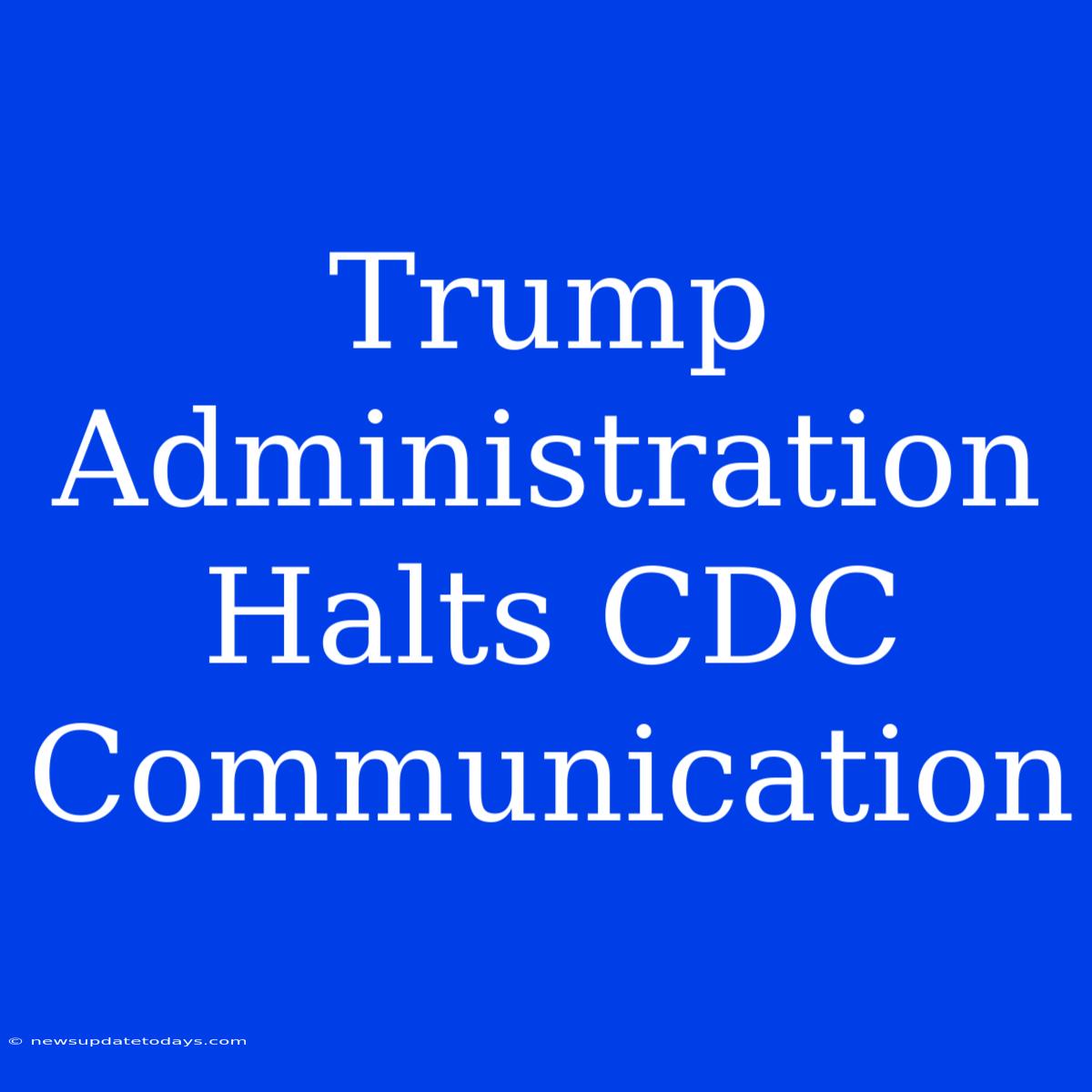Trump Administration Halts CDC Communication: A Suppression of Scientific Expertise?
The Trump administration's decision to halt communication from the Centers for Disease Control and Prevention (CDC) sparked significant controversy and raised concerns about transparency and the suppression of scientific expertise. This action, occurring during a period of national and global health crises, ignited widespread debate regarding the administration's approach to public health information. This article delves into the implications of this controversial move.
The Fallout of Silenced Scientists
The abrupt halt to CDC communication directly impacted the public's access to vital health information. The CDC, a leading authority on public health, plays a crucial role in disseminating crucial data and guidelines. Restricting its communication channels, therefore, severely hampered the public's ability to make informed decisions about their health and safety.
This silencing of scientific voices fuelled distrust and skepticism among the public. Many viewed the administration's actions as an attempt to control the narrative surrounding critical health issues, prioritizing political considerations over public well-being. The perception that scientific data was being manipulated or suppressed eroded public confidence in the government's response to these crises.
Key Questions Raised:
- Transparency and Accountability: Did the administration's actions violate the public's right to access accurate and timely health information? What mechanisms were in place to ensure transparency and accountability in the dissemination of public health data?
- Political Interference: To what extent did political considerations influence the decision to halt CDC communication? Did this interference compromise the integrity of scientific findings and recommendations?
- Impact on Public Health: What was the measurable impact of restricted communication on public health outcomes? Did the delayed or suppressed information contribute to increased illness, mortality, or other negative health consequences?
- Erosion of Trust: How did the administration's actions affect public trust in governmental institutions and scientific expertise? What steps could be taken to rebuild this eroded trust?
The Broader Context: A Pattern of Behavior?
The incident wasn't an isolated event. Critics pointed to a broader pattern of the Trump administration's approach to scientific agencies and experts, characterized by attempts to downplay or discredit scientific findings that contradicted its policy goals. This pattern of behavior raised serious questions about the administration's commitment to evidence-based decision-making.
The debate surrounding the halting of CDC communication highlights a crucial tension between political agendas and scientific integrity. Access to reliable, unbiased information is paramount for effective public health management. The implications of restricting this access extend far beyond immediate health crises; they affect the very foundation of informed citizenship and effective governance.
Moving Forward: Lessons Learned
The controversy surrounding the Trump administration's actions should serve as a cautionary tale. Future administrations must prioritize transparency, scientific integrity, and the public's right to access accurate health information. Robust mechanisms for oversight and accountability are crucial to preventing similar incidents from occurring again. The experience underscores the vital importance of protecting the independence and authority of scientific agencies in the service of public health. The health and well-being of a nation hinges on the free flow of accurate and timely information, grounded in rigorous scientific evidence.

